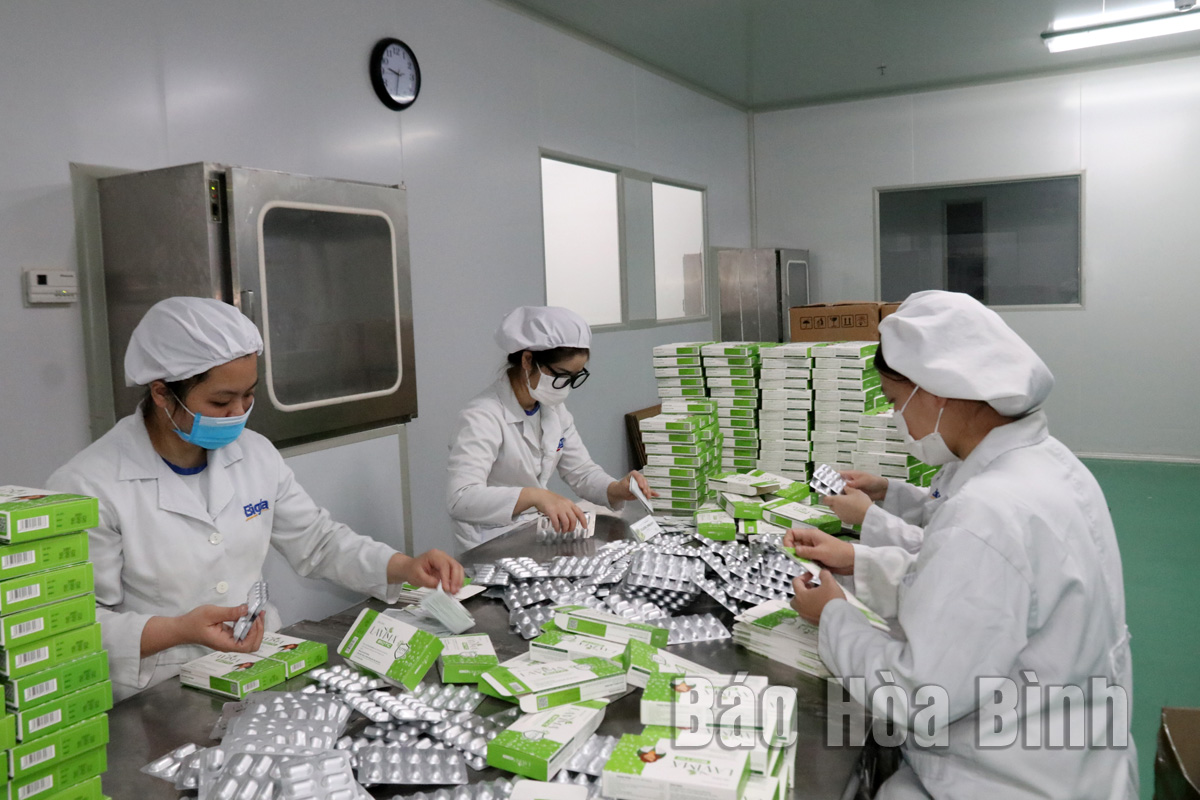
(HBO) – In the 2022 Provincial Competitiveness Index (PCI) announced by the Vietnam Chamber of Commerce and Industry (VCCI) in early April, Hoa Binh ranked 53rd out of the country's 63 provinces and cities with a total score of 62.81 points, up 9 places compared to 2021. This result reflected efforts of the whole political system in reforming administrative procedures and improving the local business investment environment.
The Resolution of the 17th provincial Party Congress for the
2020 – 2025 term set a target of increasing 3 places each year on the PCI
rankings. It defined administrative reform and improvement of the business and
investment environment is one of strategic breakthroughs in order to
successfully implement the province's socio-economic development targets for
the 2020 – 2025 period. However, in 2021 - the first year implementing the
Resolution, the province fell to the 62nd place out of the 63 provinces and
cities in the PCI rankings and was in the underrated group.
Therefore, many concerted solutions have been drastically
implemented by the province. The whole political system has got involved with
the determination to build an open, transparent and attractive business
environment. The provincial People's Committee has supplemented many mechanisms
and policies to improve the business and investment environment, and create
favourable conditions and equality for all economic sectors to develop. At the
same time, it has built specific mechanisms and policies to encourage
enterprises to invest in agriculture and rural areas, support linkages in
production and consumption, and assist innovation and start-ups.
In addition, efforts have been made to simplify
administrative procedures, promote the application of information technology in
handling administrative procedures, and improve the satisfaction of
organisations and individuals.
These solutions have created trust in the business community.
As a result, in the 2022 PCI index, the province saw seven out of nine
component indexes reporting increases compared to those of 2021.
However, the provincial People’s Committee, departments and
agencies all agreed that it cannot be satisfied, because the province's PCI is
still at the bottom. Therefore, in order to fulfill socio-economic development
targets for 2023, there is a need for persistence and decisiveness in the
process of improving the competitiveness index as well as the business and investment
environment of the province. In particular, carrying out solutions to promote
production and business and ensure a safe policy environment for enterprises to
develop is considered as one of the key tasks in the coming time./.
According to data from the Hoa Binh Provincial Party Committee, the industrial production index for the first six months of 2025 is estimated to have increased by 20% compared to the same period last year. This marks the highest year-on-year growth rate for this period since 2020.
In the first six months of 2025, Hoa Binh province’s export turnover was estimated at 1.145 billion USD, marking an 18.11% increase compared to the same period in 2024. Import turnover was estimated at $ 804 million, a 17.15% increase, which helped the province maintain a positive trade balance.
The lives of the ethnic minority farmers in Tan Lac district have gradually improved thanks to the new directions in agricultural production. This is a testament to the collective strength fostered through the professional associations and groups implemented by various levels of the district’s Farmers’ Union.
With the motto the "product quality comes first,” after nearly one year of establishment and operation, Muong village’s Clean Food Agricultural and Commercial Cooperative, located in Cau Hamlet, Hung Son Commune (Kim Boi district), has launched reputable, high-quality agricultural products to the market that are well-received by consumers. The products such as Muong village’s pork sausage, salt-cured chicken, and salt-cured pork hocks have gradually carved out a place in the market and they are on the path to obtaining the OCOP certification.
In the past, the phrase "bumper harvest, rock-bottom prices" was a familiar refrain for Vietnamese farmers engaged in fragmented, small-scale agriculture. But today, a new spirit is emerging across rural areas of Hoa Binh province - one of collaboration, organisation, and collective economic models that provide a stable foundation for production.
Maintaining growing area codes and packing facility codes in accordance with regulations is a mandatory requirement for agricultural products to be eligible for export. Recently, the Department of Agriculture and Environment of Hoa Binh province has intensified technical supervision of designated farming areas and packing facilities to safeguard the "green passport" that enables its products to access international markets.


